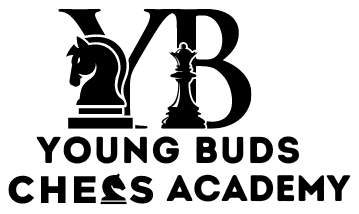Chess is often seen as a game of kings, but it’s also a powerful tool for academic success. For kids, playing chess isn’t just about moving pieces on a board—it’s about developing skills that translate directly to the classroom. From improved math scores to better reading comprehension, chess offers a range of cognitive benefits that can give kids a head start in school. Let’s explore how chess boosts academic performance and why it’s a must for every child.
Sharpening Problem-Solving Skills
At its core, chess is a game of problem-solving. Every move presents a puzzle: How do I protect my king? How can I capture my opponent’s queen? Kids who play chess learn to break down complex problems into manageable steps, evaluate options, and choose the best course of action.
This analytical mindset is a game-changer in academics. In math, for example, kids who play chess often excel at solving equations and word problems because they’re used to thinking logically and systematically. A 1990s study in New Brunswick, Canada, found that students who learned chess showed significant improvements in math problem-solving compared to their peers.
Enhancing Memory and Recall
Chess requires players to remember patterns, openings, and past games. Kids who play regularly develop stronger working memory, which is the ability to hold and manipulate information in their minds. This skill is crucial for academic tasks like memorizing vocabulary, recalling historical dates, or understanding scientific concepts.
Research from the University of Aberdeen showed that children who played chess had better memory retention than those who didn’t. This advantage helps kids absorb and retain information more effectively, making studying easier and more efficient.
Boosting Reading and Language Skills
Surprisingly, chess can also improve reading comprehension. The game teaches kids to think critically and anticipate outcomes, skills that are essential for understanding texts. When reading a story or an article, chess-playing kids are better at identifying main ideas, predicting plot developments, and analyzing characters’ motives.
A 2003 study in Texas found that elementary students who participated in chess programs showed greater gains in reading scores than their non-chess-playing peers. This boost in literacy skills can lead to better performance in English, social studies, and other language-based subjects.
Improving Concentration and Attention Span
Chess games can last anywhere from a few minutes to several hours, requiring sustained focus. Kids learn to block out distractions and stay engaged, even when the game gets tough. This ability to concentrate is a vital asset in the classroom, where distractions like smartphones and chatter can hinder learning.
Teachers often notice that chess-playing students are more attentive during lessons and better at completing assignments. By training their brains to focus, kids develop a habit that benefits every subject, from science experiments to essay writing.
Developing Strategic Thinking for Long-Term Success
Chess is a game of strategy, not just tactics. Players must plan several moves ahead, anticipate their opponent’s responses, and adjust their approach as the game evolves. This strategic thinking mirrors the skills needed for academic planning, such as setting study goals, managing time, and preparing for exams.
Kids who play chess learn to think long-term, which helps them excel in subjects that require planning, like writing research papers or conducting science projects. They also become better at prioritizing tasks, a skill that sets them up for success in high school and beyond.
Building Confidence in Academic Abilities
Success in chess builds a child’s belief in their intellectual abilities. When a kid solves a tough chess puzzle or wins a tournament, they realize they’re capable of tackling difficult challenges. This confidence carries over to the classroom, where they’re more likely to take on challenging assignments or participate in class discussions.
Conversely, losing a chess game teaches kids that mistakes are part of learning. They analyze their errors and try again, developing a growth mindset that’s essential for academic resilience. This attitude helps them persevere through tough subjects like algebra or foreign languages.
Making Learning Fun
One of chess’s greatest strengths is that it feels like a game, not work. Kids are so focused on outsmarting their opponent that they don’t realize they’re honing skills that will help them in school. This intrinsic motivation makes chess a fun and sustainable way to boost academic performance.
Chess is a powerful tool for academic success, offering kids cognitive, emotional, and practical benefits. By introducing your child to chess, you’re giving them a head start in school and equipping them with skills that will serve them well into adulthood.
